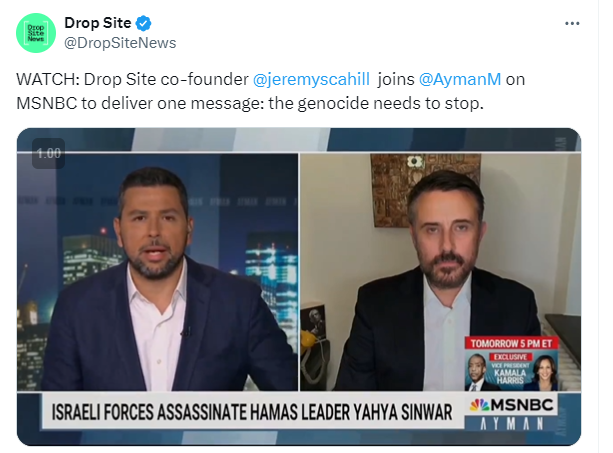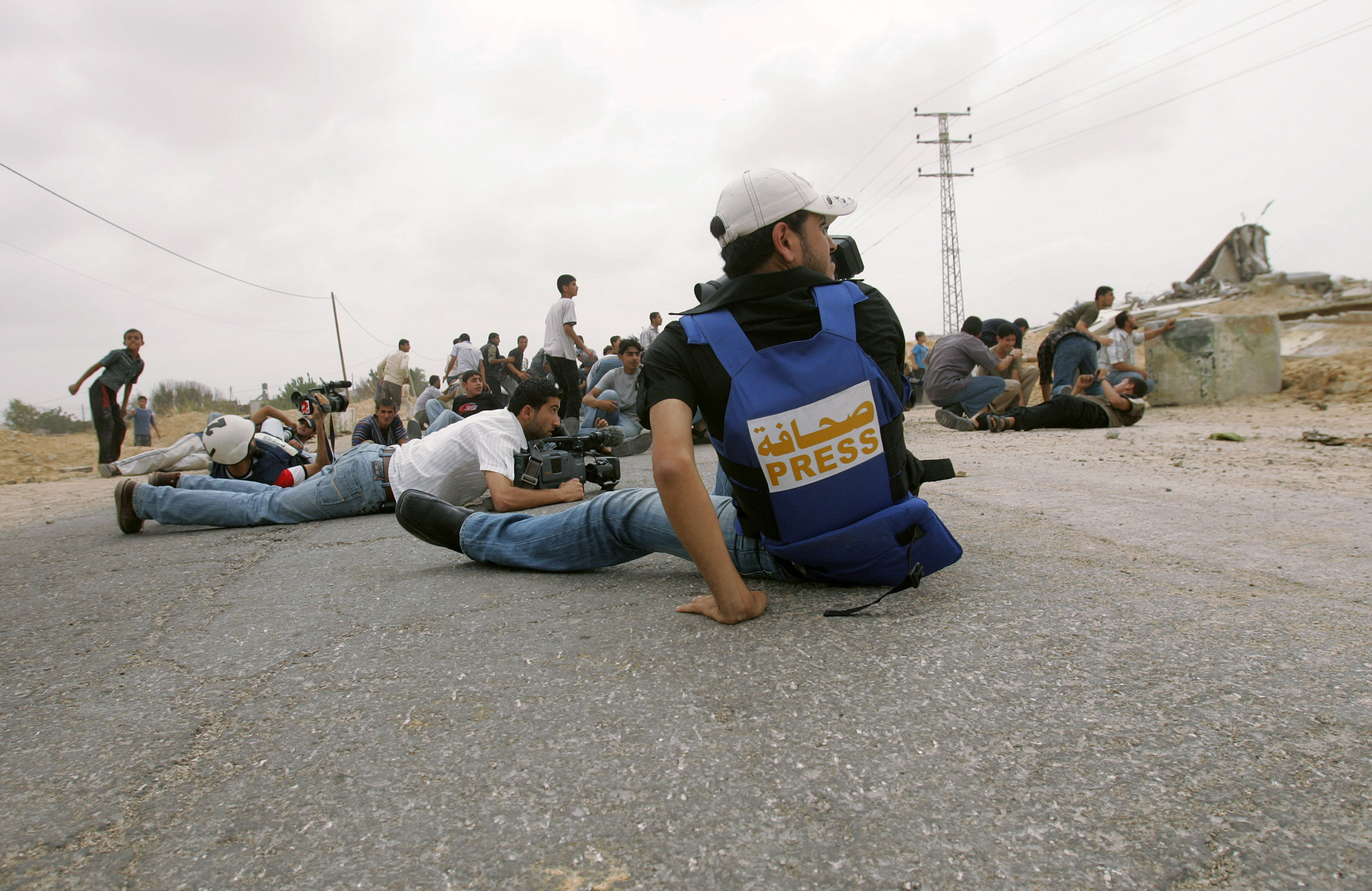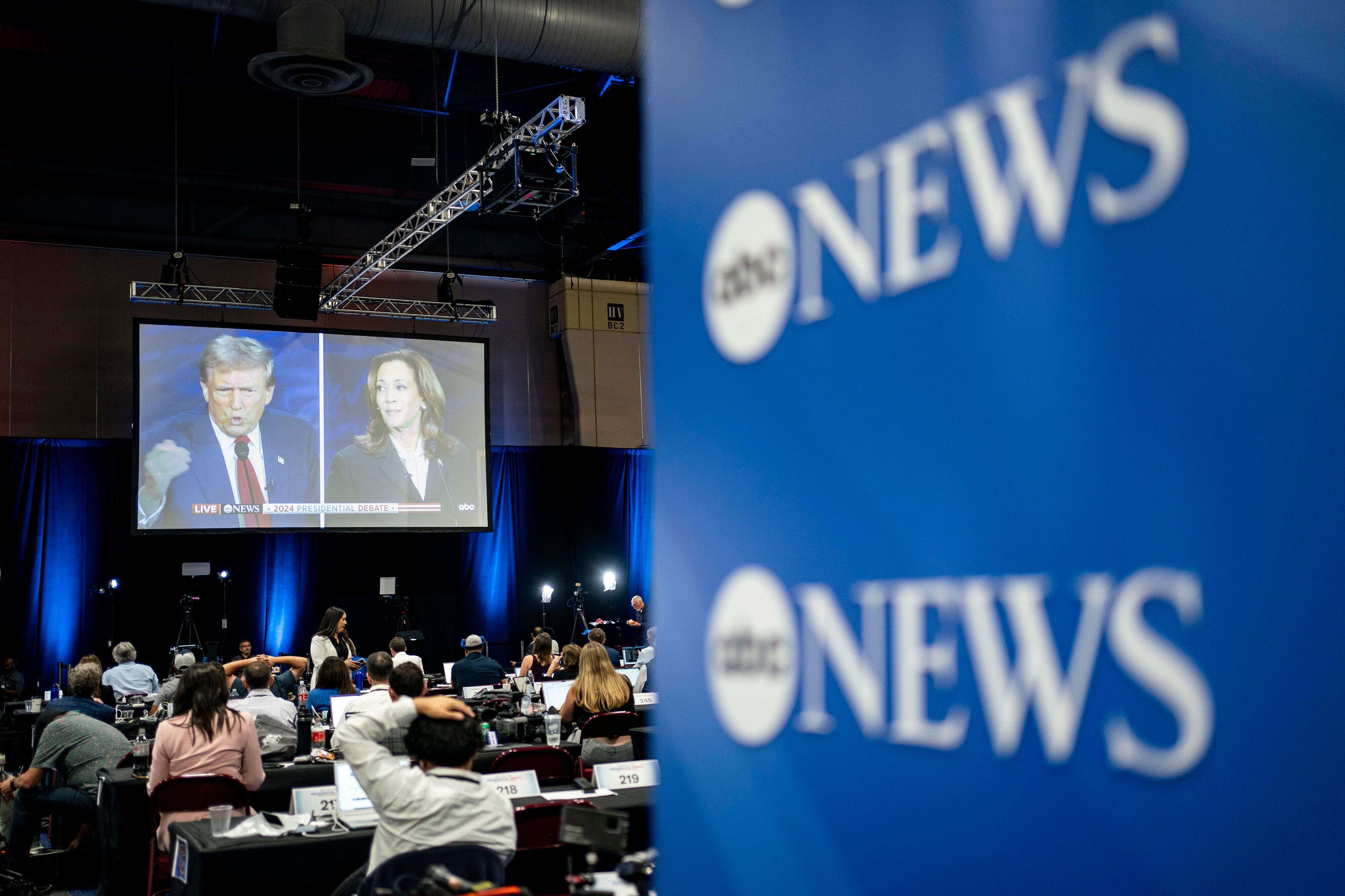“We cannot sit here as journalists—or even as ordinary people—and watch humans being torn to pieces, calling it ‘self-defense.’ There’s nothing about this that qualifies as self-defense.”
With these words, independent journalist Jeremy Scahill addressed the host and viewers on MSNBC on October 20, during a segment covering recent developments in Gaza following the assassination of Yahya Sinwar and the intensification of Israel’s military campaign in northern Gaza.
The following day, MSNBC removed the interview from its platforms. Activists on social media speculated that this might mark Scahill’s last appearance on the network, which is known for its liberal and Democratic-leaning stance.
The interview began with the host asking, “Can you tell us he [Yahya Sinwar] has been so controversial as a figure to the Israelis and the Americans, even before October 7th?” Scahill—co-founder of The Intercept and founder of the independent platform Drop Site—opened his response by condemning American media’s biased framing of the issue. He argued that discussions of the “achievement” of the Israeli occupation overshadow a series of massacres against Palestinians in Gaza.

Scahill stated, “As we are speaking tonight, the Israelis are waging an extermination campaign in the North of Gaza. For the past two weeks they've surrounded the area, and they have intensified it after the killing of Sinwar. No food or medicine of any kind has reached most parts of the North. I’m in direct touch with medical officials in the North and journalistic colleagues. I understand that at least 80 people have been killed tonight in a horrifying set of attacks in half a dozen residential buildings.”
Scahill highlighted the fundamental media responsibility to serve the public by helping them understand issues within context, avoiding framing that limits viewers to a single, selective narrative. He argued, “This is not about objectivity. How any of us can watch this genocide unfolding in real time and watch the pontification of politicians running for president, and not just cry out, 'this has to stop!' I mean, this has to stop. We've looked at this, Ayman, I know you have reported from the ground in Gaza. We are watching a genocide in real time. I am sorry, but even on this network, there are people who promoted propaganda from Israel.”
Regarding Sinwar, Scahill stressed that any media discussion about him that ignores the realities of occupation in the West Bank, Gaza, and Jerusalem represents a clear ethical and professional violation, concealing essential truths shaped by decades of occupation and settlement in Palestine and an ongoing 17-year blockade on Gaza. He elaborated, “Yes, we should talk about Yehya al Sinwar. But Yehya al Sinwar is in many ways the story of Gaza.” He responded to the question of violence and resistance by explaining, “Yes, he was a violent man, but his violence was rooted in the fact that he was born in a refugee camp. And Israel, throughout his entire life, waged a war of inhalation against the Palestinians. I am not here to defend Yeha al Sinwar. But I am here to say that we can't talk about who he was or what Hamas is without talking about 75 years of colonialism of apartheid, of mass killing, of 'mowing the lawn", of controlling the calories. Yes, let's talk about Yehya al Sinwar, but my God, we cannot watch more children being shredded and say that this is OK, that it was just a political issue.”
Scahill, author of Dirty Wars, is known for his independent reporting that critiques mainstream media bias favoring the Israeli narrative. Through his reports, investigations, and podcasts, he has highlighted the involvement of U.S. administrations, politicians, and American media in supporting Israel’s war machine and providing material and diplomatic cover for Netanyahu’s government, implicated in acts of genocide in Gaza. In the interview, he criticized Israel’s misleading narratives, including those regarding Sinwar, who was portrayed as “hiding in tunnels and using captives as human shields,” a story contradicted by footage of his last moments. He confronted an armed drone and resisted with a stick, with Israel itself immortalizing him as a man willing to die for Palestine’s liberation.

















































